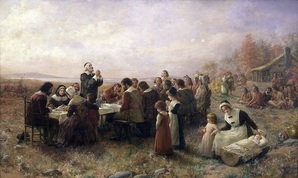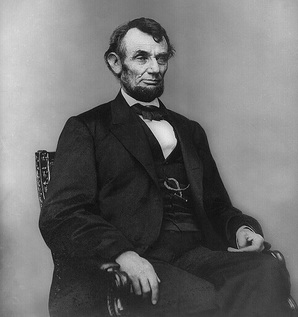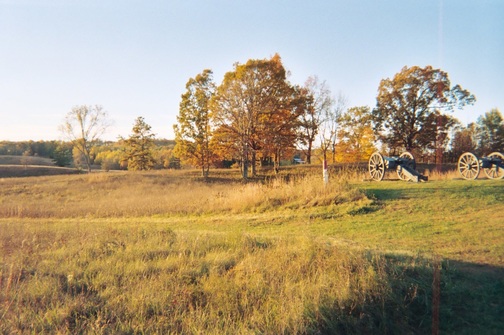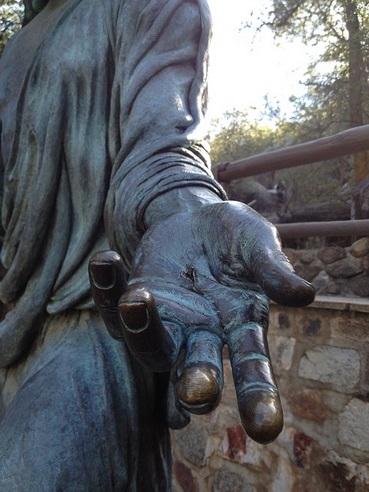 Is it just me, or has our society abandoned Thanksgiving? Society has been sliding away from anything rooted righteousness. So seeing efforts each year to extend the season for buying stuff we don’t really need shouldn’t surprise anyone. But this year I sensed a significant movement when stores began putting out their Christmas displays two weeks before Halloween. Seriously? Christmas is my favorite holiday, but come on. Is there no longer a place for gratitude in our society? Thanksgiving is the appropriate start of the holiday season. Every good in our lives begins with gratitude. Without gratitude, we simply won’t see the bounties of blessings that surround us even in the worst of circumstances. Only with gratitude can we open ourselves to the blessings we desire but lack. Only with gratitude can we open our hearts to receive more of the joy found in Christmas and New Year’s Day. So Thanksgiving should start the holiday season. However, it wasn’t always that way. Learn from history  Wikipedia has an excellent article on the history of Thanksgiving in America. The first Thanksgivings were not the appointed national holiday of today. Rather they appear to have sprouted from the religious culture of the day. In that context Continental Army commander George Washington declared a national day of thanksgiving in 1777 for the American victory at Saratoga, a major turning point for the war. The image below shows what the fields of Saratoga looked like when I visited the site. Again in 1789 Washington, now the first President under the Constitution, proclaimed a day for the country to unite in service and giving thanks to God. Consider that the fledgling new nation under the Constitution had just passed its first year. According to Washington’s proclamation, times seemed to be fairly good. And in that season of good, gratitude was embraced. We should also embrace gratitude when our own seasons seem fairly good. Gratitude fits every season  Although an important precursor, Washington’s proclamation didn’t establish the national holiday of today. That came much later. Fast forward the reels of history to the darkest days of the American Civil War. This war was the first truly industrialized war, making use of new weapons available by industrial technology. By late 1863, tens of thousands had died in horrific scenes of violence and destruction never before experienced. Notwithstanding, President Abraham Lincoln proclaimed the final Thursday in November 1863 as “a day of Thanksgiving and Praise to our beneficent Father who dwelleth in the Heavens.” Thanksgiving, previously celebrated only sporadically, has been celebrated annually ever since. I find Lincoln’s proclamation remarkable. In the midst of what must have seemed incredibly difficult to those then living, the nation’s leader calls upon the people to give thanks. Though the idea did not originate with Lincoln, I find the example set forth in his proclamation inspiring. I quote it here in its entirety. The year that is drawing towards its close, has been filled with the blessings of fruitful fields and healthful skies. To these bounties, which are so constantly enjoyed that we are prone to forget the source from which they come, others have been added, which are of so extraordinary a nature, that they cannot fail to penetrate and soften even the heart which is habitually insensible to the ever watchful providence of Almighty God. In the midst of a civil war of unequalled magnitude and severity, which has sometimes seemed to foreign States to invite and to provoke their aggression, peace has been preserved with all nations, order has been maintained, the laws have been respected and obeyed, and harmony has prevailed everywhere except in the theatre of military conflict; while that theatre has been greatly contracted by the advancing armies and navies of the Union. Needful diversions of wealth and of strength from the fields of peaceful industry to the national defence, have not arrested the plough, the shuttle, or the ship; the axe had enlarged the borders of our settlements, and the mines, as well of iron and coal as of the precious metals, have yielded even more abundantly than heretofore. Population has steadily increased, notwithstanding the waste that has been made in the camp, the siege and the battle-field; and the country, rejoicing in the consciousness of augmented strength and vigor, is permitted to expect continuance of years, with large increase of freedom. Times have changed  How far we have strayed from those days. Now instead of coming together as people of different faiths to thank God each in his or her own way, we as a society quite literally trod over and kill one another to get the latest stuff, all motivated by self-gratification. Times have changed from what they once were. But if the times have changed before, they surely can change again. It all depends on what we choose here and now. And it all starts with gratitude, a choice we all can make. Singles can be especially prone to bemoan their own lack. This isn’t a singles tendency but rather a human tendency. We all naturally look at what’s wrong rather than what’s right. Lincoln’s proclamation in particular inspires me because amidst all of the dearth and horror of war he found reasons to give thanks. And those reasons became apparent once they were listed. Likewise, we proclaim gratitude by listing our own reasons to give thanks. Note that Lincoln’s proclamation did not ignore the negative. Lincoln acknowledged the negative, but he then highlighted the positive. Likewise, we should neither ignore the negative nor fail to highlight the positive in our own lives. We can have more of the joy that the holiday season offers in Christmas and New Year’s Day when we first embrace the gratitude extolled in Thanksgiving. No matter our individual circumstances, we can see better God’s great blessings when we first feel gratitude in our hearts. And that gratitude becomes easier to feel when we list our reasons to be grateful. So during the Thanksgiving holiday this year, take a moment to list your reasons to be grateful. The holiday season can be more rewarding for you than it has ever been before when you begin with a spirit of gratitude.
0 Comments
 Recently Natalie had another birthday. I haven’t seen this good friend of mine for a few years, but every year without fail I always text her “Happy Birthday.” After all, this friend was a great tender mercy from the Lord. Let me explain. Some years ago I pursued a woman romantically. Given my age I thought I’d be single forever if I failed. As it so happened, she was seeing behind my back someone else that she really wanted. But she continued to give me hope in case she needed Plan B. But Plan A worked. She called on my birthday to let me know. Happy birthday. Within a month she was engaged and called to tell me I wasn’t invited to the wedding. Gee, like I really wanted to show up and watch my last bastion of hope walk away with someone else. Needless to say, a huge depression ensued that was so deep my work performance suffered. My boss threatened to fire me I didn’t turn things around and quick. That’s when Natalie came in. Tender mercies always come I knew Natalie from work and admired her greatly. Though not LDS, she was a very good friend. One day she invited me on an extended lunch. Apparently Natalie thought I needed a cat. I accepted the invitation, and on the appointed day we went to the local animal shelter to find my new friend. And find her we did. As I held her for the first time, something electric passed from this animal to me. I knew this animal was meant to be with me.  That was the start of a beautiful relationship that helped me to heal from the death of my hopes to marry the woman I had loved with all my heart. Tashi (pronounced TAUGH-shee) helped me to do that in so many ways. Space won’t permit me a full explanation, but I can share a couple of memories. One year for Christmas I bought two stockings to hang over the fireplace. When I returned from the store, I showed Tashi the stockings and told her, “Now, look. There’s two stockings here, one for me and one for you. Which one do you want?” Tashi looked up at me as if to say, “Seriously? I have to pick between two miniature socks? You can’t even fit a whole bag of catnip in there.” “OK,” I replied. “Let me know when you decide.” I then procured a couple of nails and a hammer with which I hung both of the stockings. No sooner had I completed the task than Tashi jumped onto the mantle and start batting ferociously at one of the stockings. “Alright,” I said, “I guess that one’s yours!”  Tashi looked up at me as if to say, “Seriously? I have to pick between two miniature socks? You can’t even fit a whole bag of catnip in there.” “OK,” I replied. “Let me know when you decide.” I then procured a couple of nails and a hammer with which I hung both of the stockings. No sooner had I completed the task than Tashi jumped onto the mantle and start batting ferociously at one of the stockings. “Alright,” I said, “I guess that one’s yours!” Earlier that year Tashi saw her first fire in a fireplace. Seeing the flames flicker really mesmerized her. No surprise there. She once almost burned her paw while trying to touch a candle flame. So I thought that she would enjoy watching a fire from behind a screen. That she did. But little did I know how much. About two hours after the fire had died out, there she was still sitting there waiting for the fire to come back! Ah, good times. Tender mercies come to all  The Lord provided me a tender mercy in a friend who guided me to another tender mercy the Lord had prepared for me at a time in my life when I needed it. And what God does for one, He’ll do for anyone. God provides many tender mercies for each of us. If you don’t see them, then you just aren’t looking around you. They are there, and you don’t have to look very far to find them. Elder Bednar’s first Conference address after being ordained an Apostle is one I’ll never forget. That address about tender mercies is an all-time classic. If you haven’t read it in a while, or if you never read it, it’s worth the time. God is so good and expansive that miracles abound around all of us. Some of those miracles are tender mercies. Reflecting on mine fills me with goodness that turns my heart in gratitude to God. He knows me, He loves me, and He’ll walk with me through my life and never forsake me. What tender mercies has He provided you? If you can’t see them, pray to have your eyes opened. God will answer that prayer because He loves you very much and wants you to know how very much He loves you. When you come to know that for yourself, your heart will turn to Him in gratitude for the miracles that truly surround you. How grateful I am for the greatness of God!  Sometimes life feels so lousy you forget the miracles God provides all around you. In these moments, it’s good to step back and reset your focus. Focusing on negativity results in feeling negativity. To feel positivity, focus on positivity. And that’s where miracles come in. To me, a miracle is an occurrence that fills me with goodness and turns my heart in gratitude to God. Expected or not, large or small, it will always fill me with goodness that turns my heart to God in gratitude. God is great  In Spanish, there’s a saying: Dios es grande, or God is great. Great can mean good or highly favorable. But it could also mean large or expansive. So the saying really communicates two ideas simultaneously. God is both very good and very expansive. And if God is good and expansive, so is everything He does. That’s why miracles abound around everyone. God is so good and expansive that He provides as many blessings as we’re able to receive. And there are yet more blessings surrounding us every single day. Truly, Dios es grande. The law of the harvest  I know what some of you are thinking and feeling because I was there once myself. Hearing about how God is so good can fall on deaf ears when the eyes between those ears focus on what’s lacking in life. If that describes you, do you want to feel better about your life? Because you’ll never have the life you really want unless you start thinking the way that will help you have it. That’s just natural law — the Law of the Harvest. You reap what you sow. Check out what the Lord has to say about that.
If you want a miracle, you need to obey the law connected with that miracle. And that starts by seeing the miracles already around you. Receiving means seeing  If you can’t see the miracles already around you, you simply won’t see God’s hand providing you the miracle you want. There’s a simple reason for that. Many times we think we want something and even feel it with all the passion a soul can muster. Yet the Lord, whose thoughts are higher than our thoughts, knows us better than we know ourselves. And He provides accordingly. Many of us singles pine for the relationship we don’t have, yet the relationship we really want most is always available. That relationship is the one we have with God. And that relationship is the one that can help us to obtain and maximize any other relationship we could ever have in life. Oh, and here’s the kicker: Part of improving your relationship with God is learning to see His handiwork. What kind of relationship can you have with someone whose work you don’t even recognize, especially when that work surrounds you all the time? That’s why receiving the miracles you want starts by seeing the miracles already around you.  And miracles do indeed surround you. Ever watch a sunrise? Ever held a newborn? Ever felt a cool breeze on a sunny day? Ever smelled the freshness of the air after the rain? It doesn’t stop there. Ever paid tithing during a hard time and been blessed with ends somehow meeting? Ever been protected in the very moment you needed it? Ever sat in a church meeting and felt like the speaker — a stranger — talked directly to you, telling you precisely what you needed to hear? We’ve all had experiences in which God demonstrated His love and concern for us individually. And the world of nature surrounding us overflows with reminders of that love. We just need eyes to see what’s right there around us. Make space for miracles  Only after we begin to see the miracles surrounding us and turn our hearts in gratitude to that God Who provides them daily can we receive the miracles we want. That’s because lack of gratitude is like a filter preventing what we want to receive from coming to us. Gratitude removes that filter by focusing our vision on what God has already given us. That’s the channel we need to open wider in order to receive more. As the hymn gently teaches, “Count your many blessings. See what God has done.” When you see how overflowing with blessings your life already is, you’ll not only see how great God is but also make the space for receiving more. And with that greater abundance from God’s hands, you can then be His hands to help others receive greater abundance in their lives. And that’s one of the greatest miracles of all. What miracles surround you? Because it is true — miracles abound around all of us.  I’ve been thinking about something I wrote in my post last week inviting our married friends to walk with us singles. We are all journeying to our eternal home, and some of us are further along the path than others. Yet the journey itself requires us not only to return home but to return home with others. Walking with others along the path is a key feature of the journey. And who exactly are those others? I know I’ve been harping on singles because, hey, this is a singles blog. But I don’t want to allow my own circumstances to cloud my vision from higher views. My neighbor  The Savior was once asked, “And who is my neighbor?” (Luke 10:29) He replied with one of His most well-known parables, the story of the good Samaritan. We’ve all heard it. A man fell among thieves along the road from Jerusalem to Jericho and was left for dead. A priest came by, saw the man in need, and went about his way. A Levite came by and did the same. But when a Samaritan came by, “he had compassion on him” and ministered to his needs. There’s so many lessons here, as is typical of the Master’s teachings. Note the characters who did not help when help was needed. Both the priest and the Levite are priesthood holders and as such are under covenant to minister to the needy. Yet they both passed by on the other side. It’s bad enough that they preferred to violate their covenant obligation. But they didn’t want even to be associated with the man in need. By their actions, they proclaimed their belief in convenience over compassion. Not so with the Samaritan. Though considered an outcast by the priests and Levites, this man chose compassion over convenience. He didn’t see the half-dead man through the eyes of differences, though he very well could have. Instead he surrendered to love. And by so doing he saw a child of God, which is perhaps the greatest similarity we all share. Dealing with differences  What do we see when presented with people who are different than we are? Do we focus on the differences? Or do we see the similarities? We singles are well aware of how ostracizing the culture in the Church can be. When the focus is constantly on what you don’t have, a feeling of exclusion is natural. Yet we are far from alone in feeling that way. Take the married couple who can’t have children. Or the married couple who don’t have any children soon after their marriage. The same pressure for acceptance through marriage that never-been-married singles feel presses against these married couples. And what about those from lower economic situations? Or those who hold differing political views? The list goes on and on, yet the same habit plays itself out. When we focus on the differences between ourselves, placing others into boxes that highlight those differences, we walk the path of the priest and the Levite. We keep ourselves on the other side of the road and away from the covenants and compassion that should define us. There’s no end to the differences when you focus on them. For example, we singles can talk all day about feeling like we don’t fit in with those who are married with families. But when we singles congregate, we often focus upon differences amongst ourselves. We have the same habit held by the priest and the Levite. We don’t associate freely with everyone. And very often the ones who most need help are the ones most avoided. Fortunately, there is likewise no end to the similarities when you focus on them. If you don’t see the similarities to the people around you, then pray in your heart that God will open your eyes. And then look for a miracle, because that is what God will show you. We are all children of God. Can we look beyond the marital status and the other differences we use to define each other? Can we have compassion upon those who are not the same as we are but need help? The answer is a resounding yes, if we choose to walk on the Samaritan side of the road. We need to walk together. That means all of us. It’s not just fuzzy-wuzzy goodness. It’s essential for our eternal exaltation. The process of helping one another along the path to eternity, regardless of our differences, is the very refinement that we all need to be worthy of eternal glory. It’s what must be in place in order for Zion to be. And I don’t know about you, but Zion is the place where I want to live. |
Author
Howdy! I'm Lance, host of Joy in the Journey Radio. I've been blogging about LDS singles life since 2012, and since 2018 I've been producing a weekly Internet radio show and podcast to help LDS singles have more joy in their journey and bring all Latter-day Saints together. Let's engage a conversation that will increase the faith of LDS singles and bring singles and marrieds together in a true unity of the faith.
Comment
Joy in the Journey Radio encourages the free discussion of ideas but reserves the right to remove and/or block comments which do not conform to LDS standards.
Donate
Joy in the Journey Radio offers many free resources to help LDS singles everywhere, but it certainly isn't free! Help Joy in the Journey Radio in its mission to improve the lives of LDS singles by donating today.
Posts by Month
December 2022
Categories
All
|





 RSS Feed
RSS Feed